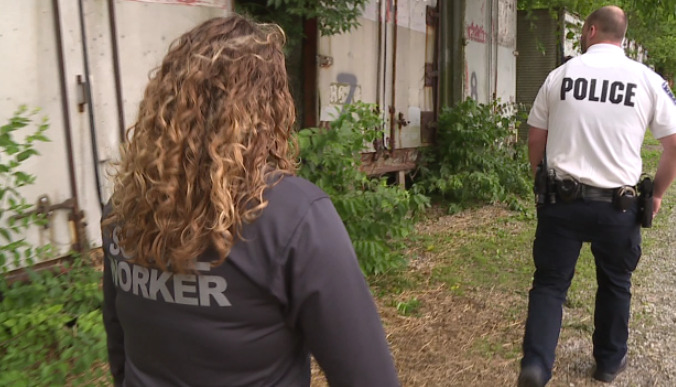
Some positive conversations about non-law enforcement (NLE) response are ongoing in the aftermath of cries for police reform. The mythology that often underpins these conversations is that police have no skills or training to deal with persons in a mental health crisis and are prone to using deadly force unnecessarily.
Some of these NLE reforms have included adding social workers as car partners to respond to calls likely to involve a mental health crisis, or sending another professional without any law enforcement response. Unless something bad happens of course.
Some programs pre-existed the no-cops wanted movement, notably Eugene, Oregon’s social worker response alternative that has been working for over three decades. Even this program, at least as of last year when this author visited on site, is not available every day at all hours. A recent boast from Denver, Colorado’s NLE reported that they have resolved many cases, saving police the trouble. While this is laudable, the calculus of the expense of the program compared to just having cops handle things as always wasn’t clear. The Denver program also operates on limited hours and, as all NLE response programs, would not deal with known violent situations, reducing the number of situations that these programs would handle.
NLE response programs may very well have their place. The celebratory articles, however, should be considered in context and with supporting, valid data, that shows their effectiveness in contrast to law enforcement response. Certainly, at least one advantage is that taking some of the burden of these calls away from the police could potentially provide relief for understaffed agencies suffering backlogs of 911 calls.
The worst of these NLE programs are funded by transferring chunks of police budgets. Reducing funding for law enforcement not only creates a negative value for the alleged cost and time savings from relieving police from mental health response, but it also creates additional risks for NLE who find out they need a police presence on some of their calls.
Many agencies have long had specially trained police officers on so-called Crisis Intervention Teams (CIT). These are lauded by some and criticized by others. Some CIT outcomes have resulted in death or injury to disturbed persons and, therefore, the cops are to blame according to critics. Never mind that many are medical emergencies requiring custody for treatment, many involved drug use that creates hallucinations, violence, and unresponsiveness to verbal commands and pain compliance, and many have involved weapons. Again, these are calls that would never be handled by NLE units alone. They would never be dispatched to them or they would, wisely, retreat and call for law enforcement.
Estimates on the percentage of police calls for service are a result of mental health crises vary, but the American Psychological Association cites the rate at 20 percent. What percentage of those calls could be handled by NLEs is speculative, as many would involve violent behavior or access to weapons which would rule out NLE response. Talking calmly, being empathetic, and making eye contact is not hypnotism and won’t de-escalate someone out of touch with reality or unable to process the need for rational behavior.
Another concern is that criminal behavior and mental illness are not always separate from each other. Drug dealing, theft, sexual assault, and domestic violence can co-occur with those in a mental health crisis (a term with ambiguous meaning). If a crime is discovered by NLE teams would it be recognized or reported? Domestic violence, according to a U.S. Department of Justice report, can constitute between 15% and 50% of calls to police, with up to 35% of those involving a chargeable offense. Can NLE response draw the line?
Most social workers eventually come to understand the police role and respect the officers they end up working with. There exists, however, some palpable distaste among some idealists whose opposition to the very existence of police (because they believe police are a root cause of problems) can create a chasm between social services and law enforcement access to criminal investigations. As an example of this hostility, this writer spoke to a national convention of victim advocates on the topic of police officers who are victims of crime. During the question-and-answer period, one social worker declared that she would never help a police officer who was a crime victim.
Ultimately most NLE personnel lack the authority to immediately compel persons to get treatment and care. Relying on voluntary entry into programs to help has obvious failure rates. When law enforcement brings cases to court, access to treatment can be compelled by a judge with enforceable consequences. Before the development of social welfare networks, the primary access to help was through the compulsion of the courts. Police leaders are happy to hand off responsibility to those who are better equipped, whether that be helping a stranded traveler or homeless person, arranging care for an abandoned child, or counseling a suicidal person. But acting as a social worker will always be in the police officer’s job description under “other duties as assigned”, and they do a good job at it.